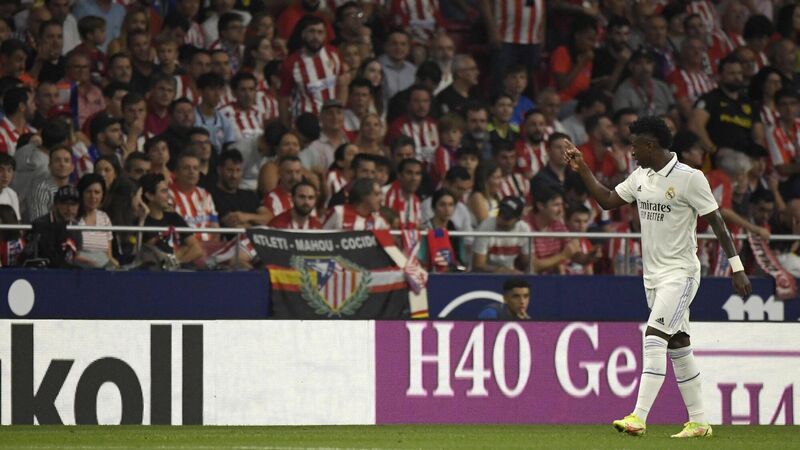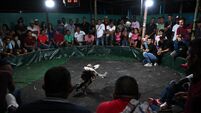Tommy Martin: Where does personal responsibility go in a football crowd?

ABUSED: Real Madrid's Brazilian forward Vinicius Junior gestures toward the crowd during the Spanish League football match between Atletico Madrid and Real Madrid at the Wanda Metropolitano stadium. Pic: Oscar Del Pozo/AFP via Getty Images
They came in their hundreds of thousands, day after day. Some were long-time devotees, others simply felt compelled to join in the collective outpouring of emotion. All were drawn by the unique power of a figure at once remote but also familiar, uniquely charismatic but deeply ordinary.
Yes, Garth Brooks puts on a hell of a show.









